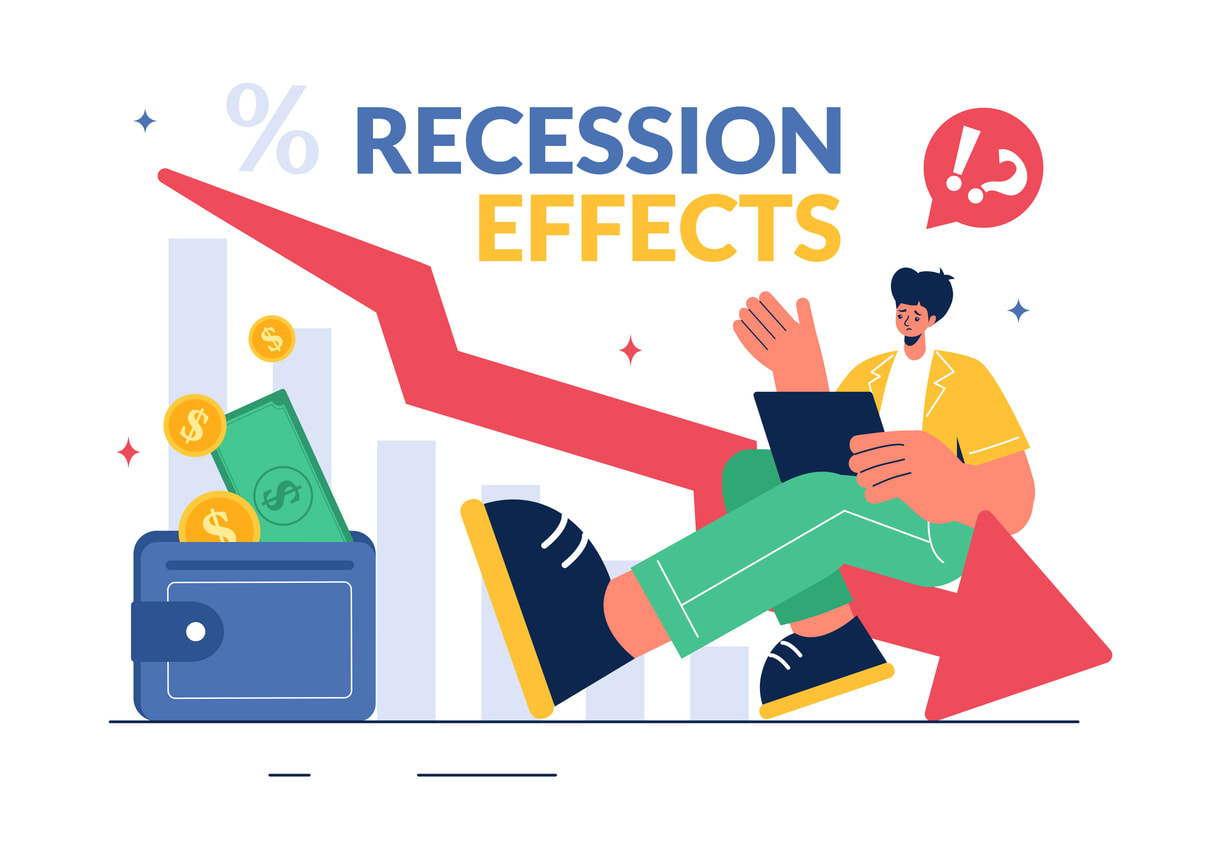The millennial generation, those born from 1981 to 1996, grew up during a time of rapid technological change, economic shifts, and evolving social norms. Unlike previous generations, Millennials came of age with the internet, navigated adulthood during a financial crisis, and helped shape the digital world we live in today. In this article, we’ll explore the Millennial age range, defining events that shaped their worldview, and the traits that continue to influence their careers, relationships, and daily lives.
Key Takeaways
- Millennials, born between 1981 and 1996, encompass a generation shaped by significant historical events, technology, and economic challenges, influencing their values and behaviors.
- The Great Recession created long-term financial difficulties for Millennials, impacting their career paths, delaying traditional life milestones, and leading to higher levels of student debt compared to previous generations.
- Millennials prioritize work-life balance, personal growth, and social activism, reflecting their distinct workplace expectations and engagement in progressive political issues.
Defining Millennials

Millennials, or Generation Y, are those born between 1981 and 1996. Neil Howe and William Strauss coined the term “Millennial” to describe a generation that matured at the turn of the millennium. This cohort is notable not only for its size but also for experiencing a unique mix of technological advancements, economic challenges, and social changes that have significantly impacted young people.
Names like Millennials, Generation X, and Baby Boomers are more than labels; they encapsulate the attitudes, motivations, and historical events that shape age groups and the age group over nearly two decades. These generation names reveal the collective experiences and societal impacts of each demographic cohort, offering a framework for research and analysis.
Millennials have lived through distinct life phases: early adulthood and established adulthood. Early on, they navigated a post-9/11 world and the rapid rise of digital technology. In established adulthood, they encountered economic instability, especially from the Great Recession. These experiences profoundly shaped their attitudes, values, and behaviors, making them a multifaceted generation of young adults.
Birth Years of Millennials

The millennial generation, born between 1981 and 1996, spans 16 years, similar to Generation X. Researchers and demographic analysts, including the Pew Research Center, widely accept this timeframe. Defining these specific years helps distinguish Millennials from other generations and explore the unique historical and cultural contexts they experienced.
The 16-year span defining Millennials mirrors Generation X, showcasing a common structure in generational research and generational cohorts. This consistency aids in comparing cohorts and understanding societal trends shifts, as they are often at the same stage. However, generational definitions are flexible and may evolve with new data and societal changes.
Though birth years set a clear boundary for Millennials, experiences within this age range vary over a few years. Older Millennials, born in the early 1980s, recall a pre-internet era, while younger ones, born in the mid-1990s, grew up as digital natives. This diversity enhances the complexity and richness of their collective identity, including the experiences of babies born during these formative years and the past year, particularly for the oldest millennials. The birth year of individuals within this group plays a significant role in shaping their perspectives, especially for a person born in this era, for people born in different contexts, and for children born during this time.
Key Characteristics of Millennials
Significant world events have profoundly shaped Millennials’ worldview. For instance, the September 11 attacks defined many Millennials’ perspectives on security, politics, and international relations. This generation blends optimism about societal change with concerns about economic stability.
Social media has been pivotal in shaping Millennials’ identity and interactions, influenced by various social factors. Platforms like Facebook, Twitter, and Instagram have revolutionized their communication and self-perception. While constant connectivity fosters a global community, it also presents challenges in mental health and privacy.
Millennials prioritize experiences over material possessions, valuing travel, personal development, and unique life events more than traditional success markers like home or car ownership. This shift reflects a broader trend towards personal fulfillment and happiness. Most millennials’ inclination towards teamwork and collaboration highlights the importance of community and collective effort.
Impact of the Great Recession

The Great Recession of 2007–09 had a significant impact on Millennials, many of whom were starting their careers. The economic recession caused high unemployment and underemployment, leading to a challenging professional start. This financial instability has had lasting effects on their economic outlook and opportunities.
Millennials have an average net worth of around $76,200, heavily influenced by economic uncertainty from the Great Recession. They face significant financial challenges, including:
- High student debt
- Increased living costs
- Lower homeownership rates
Many millennials tend to delay traditional milestones like marriage and childbearing compared to previous generations. Economic conditions during the Great Recession led many to postpone or approach these life events differently, resulting in a demographic shift in family structures. This delay is widely credited to Millennials adapting to economic realities and redefining success on their terms.
Education and Student Debt
Millennials rising are often seen as the most educated generation, with a significant rise in college degree attainment, including a bachelor’s degree. More Millennials who attend college attended university before age 21 compared to Gen X, with 52% doing so. This emphasis on higher education reflects their belief in the importance of academic and professional qualifications for success.
However, this pursuit of education has come with substantial financial challenges. Nearly 40% of U.S. student loan borrowers are Millennials, holding the largest proportion of total student loan debt among all generations. The average Millennial carries student loan debt of approximately $40,438, significantly impacting their economic stability and lifestyle choices.
The combination of high cost student debt and increased living costs has created a precarious financial situation for many Millennials. This generation’s financial landscape differs markedly from previous generations, necessitating new strategies for managing debt and achieving financial independence.
Technology and Digital Natives
Millennials are recognized as the first generation to grow up surrounded by the Internet and digital technology. The rise of the Internet marks a significant era during which Millennials came of age, profoundly influencing their communication, learning, and social interactions. As digital natives, they are familiar with technology from a young age.
Early exposure to technology has made Millennials highly adaptable to technological advancements. They confidently navigate digital interfaces and have high expectations for the simplicity and usability of digital tools on mobile devices. This adaptability allows them to integrate digital technology seamlessly into their daily lives.
Technology use varies between younger generations and older Millennials. Younger Millennials are generally more comfortable with technology than their older counterparts, who still use traditional communication methods like face-to-face interactions. This generational divide highlights varying degrees of tech savviness and preferences.
Research shows Millennials frequently switch between tasks, impacting cognitive efficiency. This multitasking ability, while beneficial in some contexts, also presents challenges in maintaining focus and productivity. Nonetheless, Millennials lead older generations in technology adoption, driving innovation and digital transformation.
Comparing Millennials to Other Generations
Millennials are positioned between Generation X and Generation Z, offering a unique vantage point in the generational timeline. The baby boom, associated with Baby Boomers born between 1946 and 1964, is often seen as optimistic and competitive, prioritizing job loyalty. In contrast, the Silent Generation, born before 1946, is known for loyalty and respect for authority, often referred to as the greatest generation and the great generation. Members of generation X also play a significant role in shaping societal trends, just as echo boomers influence modern culture.
Millennials are recognized for their diverse backgrounds, influenced by increased immigration and globalization. This diversity has shaped their inclusive attitudes and openness to different cultures and perspectives. Generation X, the preceding generation, is known for independence and entrepreneurial spirit, often acting as a bridge between Baby Boomers and Millennials.
Generation Z, born from 2001 to 2020, is often compared with Millennials due to their proximity in generational timelines. Members of Gen Z value individual expression and creativity in the workplace, reflecting a shift towards more flexible and inclusive work environments. The new generation comparing these generations highlights the evolving nature of societal values and workplace dynamics.
Workplace Values and Trends
Millennials prioritize work-life balance and personal growth, desiring to integrate personal and professional lives effectively. They seek employers who respect their personal time and understand that productivity can occur outside traditional work hours. This shift towards flexibility is a significant trend in modern workplaces, driven by Millennial values.
Collaboration and employee well-being are paramount for Millennials. They are drawn to organizations that foster teamwork and prioritize policies supporting work-life balance. Millennials often view job changes as opportunities for growth, averaging 2-3 years in each role to build a diverse skill set.
Open communication and transparency are crucial for Millennials, who prefer workplaces allowing access to leadership and sharing performance metrics. Regular feedback and recognition are also important, as Millennials value continuous input on their performance.
These workplace values and trends highlight evolving workforce expectations and the need for organizations to adapt to attract and retain Millennial talent.
Political Views and Social Activism
Millennials are more politically liberal than older generations, with distinct political activism shaping contemporary discourse. This generation shows heightened awareness of social issues and is often engaged in activism. Their changing attitudes towards governance, social issues, and economic policies are reshaping political discourse.
Key political issues for U.S. Millennials include support for same-sex marriage, attitudes toward the LGBT community, and skepticism towards capitalism. Their liberal values have significantly influenced political outcomes, such as Justin Trudeau’s election in Canada. Millennials adopt a sector-agnostic approach, collaborating with various organizations to address issues they care about, including the youth vote.
In Europe, Millennials contribute to a broader shift in values, emphasizing post-materialism, environmentalism, social liberalism, and post millennials. Their political views and activism reflect a commitment to progressive change and social justice, highlighting how millennials continue to shape future policies and societal norms.
Summary
Millennials, defined as babies born between 1981 and 1996, have navigated a unique blend of technological advancements, economic challenges, and social changes at a young age. They are characterized by their digital nativeness, emphasis on experiences over material possessions, and strong inclination towards teamwork and collaboration. The Great Recession had a profound impact on their economic stability, leading to significant financial challenges and delayed traditional milestones.
This generation’s high educational attainment comes with substantial student debt, shaping their financial landscape. Their relationship with technology sets them apart from previous generations, and their workplace values emphasize flexibility, collaboration, and continuous feedback. Politically, Millennials are liberal and socially active, advocating for progressive change. Despite facing significant mental health challenges, they are increasingly open to discussing and addressing these issues. As we look to the future, Millennials’ resilience and adaptability promise to continue shaping society in meaningful ways.
Frequently Asked Questions
Millennials are defined as individuals born between 1981 and 1996.
The Great Recession had a profound impact on Millennials, resulting in high unemployment and underemployment rates that contributed to financial instability. Consequently, many delayed important life milestones, such as homeownership and marriage.
Millennials are characterized by their appreciation for experiences and teamwork, having grown up with the Internet. Conversely, Generation Z prioritizes individual expression and creativity, particularly in professional settings.
Millennials are often referred to as the 'anxiety generation' due to heightened levels of anxiety, depression, and stress, primarily driven by financial pressures and the high cost of living. This significant impact on their mental health reflects broader societal challenges they face today.
Key political issues for Millennials include support for same-sex marriage, advocacy for the LGBT community, and a general skepticism toward capitalism, reflecting their active engagement in progressive activism.





